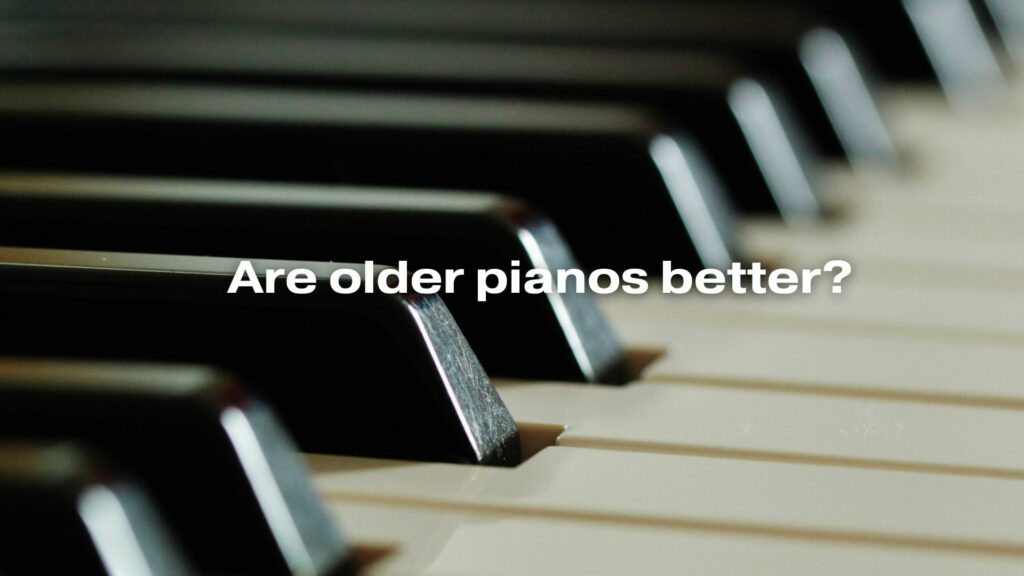Whether older pianos are better than newer ones is a matter of personal preference and depends on several factors. There is no definitive answer to whether older pianos are universally superior, as it largely depends on individual needs, playing style, and musical goals. Here are some considerations when evaluating the quality of older pianos compared to newer ones:
Advantages of Older Pianos:
- Craftsmanship: Many older pianos, particularly those built during the 19th and early 20th centuries, were constructed with exceptional craftsmanship. Skilled artisans handcrafted these instruments, resulting in attention to detail and high-quality materials.
- Tonal Character: Some musicians appreciate the unique tonal qualities of older pianos. Vintage instruments may have a warm, mellow, or character-rich sound that appeals to certain musical styles.
- Collectible and Historical Value: Antique and vintage pianos often have historical and collectible value, which can be a draw for enthusiasts, collectors, and those interested in preserving musical heritage.
- Aging of Materials: Wood and other materials in older pianos may have aged and matured, potentially influencing the instrument’s tonal characteristics positively over time.
Advantages of Newer Pianos:
- Advancements in Technology: Modern pianos benefit from advances in materials, design, and manufacturing techniques. This can result in improved playability, durability, and sound quality.
- Precision and Consistency: Newer pianos are typically built with a high degree of precision, resulting in consistent action and sound across different instruments of the same model.
- Availability and Warranty: New pianos are readily available from various manufacturers, and they often come with warranties. This provides peace of mind for buyers concerned about long-term maintenance and service.
- Customization: Many modern piano manufacturers offer customization options, allowing musicians to select specific features and tonal characteristics to suit their preferences.
Considerations:
- Condition: The condition of an older piano is crucial. A well-maintained, older piano can be a joy to play, while one that has been neglected may require extensive restoration.
- Purpose: The intended use of the piano matters. Some musicians prefer older pianos for their unique tonal qualities, while others may require the precision and power of a modern instrument for concert performances.
- Budget: Your budget plays a significant role. High-quality older pianos can be expensive, but well-made modern pianos are available at various price points.
- Personal Preference: Ultimately, the choice between older and newer pianos comes down to personal preference. Musicians have different tastes and needs when it comes to sound, touch, and aesthetics.
In conclusion, the question of whether older pianos are better than newer ones doesn’t have a one-size-fits-all answer. Both older and newer pianos have their unique qualities and can be excellent instruments. The choice between them should be based on individual preferences, needs, and considerations such as budget and the piano’s condition. It’s often advisable to play and compare pianos of different ages to determine which one aligns best with your musical goals and preferences.


